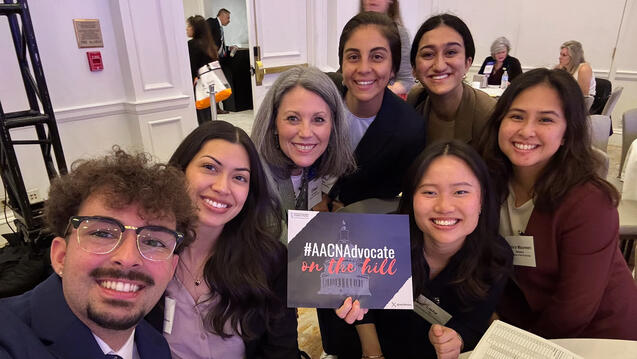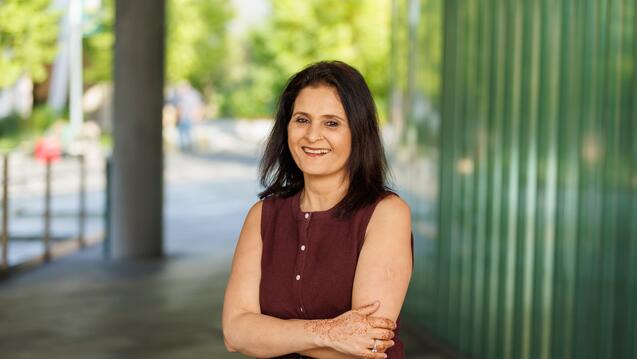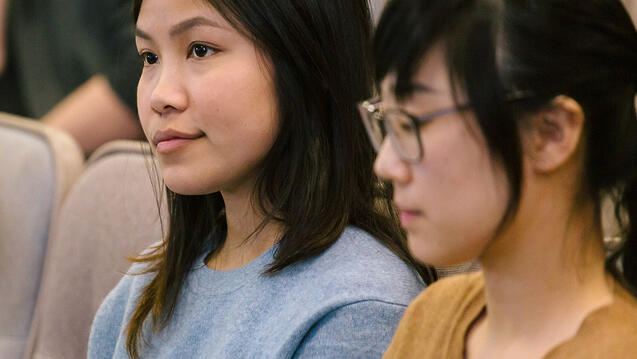
Celebrate National Public Health Week

Influence from Parents and School
I am lucky to have parents that did not force me to pursue a career that I have no interest in. Instead, they became a huge influence and inspiration as to why I chose to become a public health professional. My parents’ impact did not come into effect until I entered my second year of college at San Francisco State University (SFSU). As I was apart of a college success program at SFSU, I was instructed to enroll in a Health Education course called ‘Health and Social Justice- Burning Issues, Taking Action.’ This class taught me about health disparities among racial groups and raised my awareness about social and economic injustices as a root cause of health differences across communities.
Studying the connection between social injustice and health disparity drew my interest into public health and influenced my decision to major in Health Education. I am Asian American and experience the health disparities happening in my community. I developed an increasing interest to investigate the health issues that impact Asian Americans, which led me to opt to minor in Asian American Studies and deepen my knowledge about the cultures, experiences, and immigration history of the different Asian American ethnic groups and further my understanding of how certain community health issues are manifested. My major and minor went hand-in-hand, they both included discussions about how racism, power, and privilege create social and economic injustices that lead to inequalities.
The importance of Culturally Sensitive Health Care

Social justice discussions allowed me to explore and reflect on my own experiences growing up Asian American. Reading about the negative health impacts due to the lack of linguistically and culturally relevant services strongly resonated strongly with my personal encounters navigating the healthcare system. My parents are Chinese immigrants who do not speak English and have low health literacy. As their language broker, I was able to live along with them how difficult it can be to maneuver around the mainstream healthcare system if one does not speak English. From minor tasks such as knowing which entrance to go into the hospital or clinic, speaking to the receptionist about an appointment, and filling out medical history forms, are actually difficult tasks for people who do not speak English.
Another personal example of how language and culture impact healthcare delivery happened when my mom went to the hospital to treat her spinal disorder that paralyzed her entire body. My mom felt the poor quality healthcare because the nurses neither spoke my mom’s language nor understood her culture. One day, my mom asked for water in hopes of getting a nice warm cup of water. Instead, the nurse put ice in her mouth. My mom was furious about how the nurse treated her. In the Chinese culture, people should not consume cold drinks or food when they are in an unhealthy state. I realized that non-English speakers are unable to speak up about their unmet healthcare needs, and their voices and stories are left unheard.
How can the voices and stories of my parents, along with other people in similar situations, be heard? This is how I found my calling. I want to become a public health professional who helps bridge language and cultural barriers so people’s voices, stories, and issues get to be heard. I want to become a public health professional who always listens to and puts the community’s needs first and by doing so make an impact in advancing social justice. With these aspirations, I decided my next academic pursuit was to obtain a Master’s in Public Health (MPH).
Furthering Her Education at USF

University of San Francisco’s MPH program stood out to me the most because it has a very important trait that I look for in a graduate program: a curriculum that is taught through a social justice lens. The USF MPH program’s mission is to train future public health professionals to advance public health and social justice for a more humane and just world. Through this mission statement, I knew USF was the school for me. USF’s vision aligns with the kind of public health professional I aspire to be. My experiences and education taught me the significance of social justice in public health practice and how this connection can improve health equity among the underserved and disadvantaged communities. I chose to pursue my MPH at USF because the program and I both envision the same perspective that social justice is significant to advancing public health and creating a more humane and just world.
My next step after graduating from the MPH program will be to gain more professional working experience. Although I have plenty of experience from internships and volunteering within the public health field, I still need the professional work record that hiring managers are looking for.
On this National Public Health Week, I invite you to consider how are you contributing to addressing social determinants of health. Together we can #ChangePublicHealth


